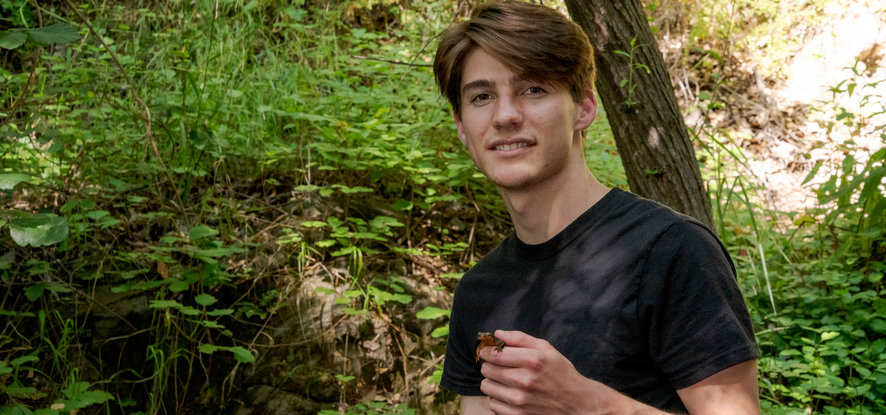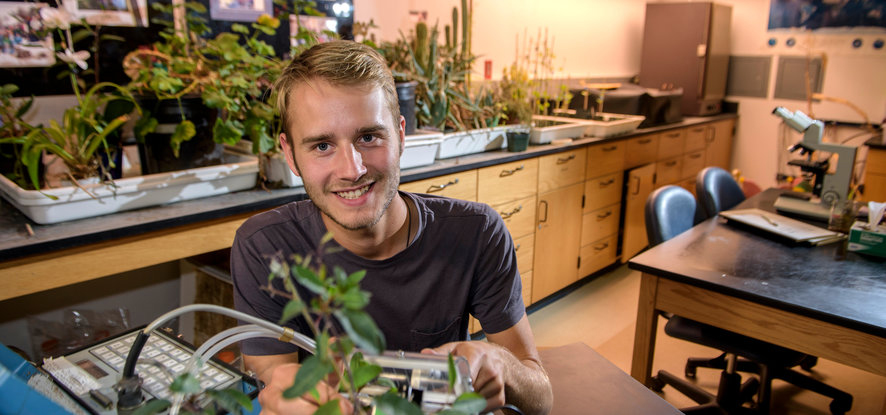Bachelor of Science in Biology vs Bachelor of Arts in Biology: What's the Difference?

Introduction
Earning a bachelor’s degree in the study of biology opens a wide variety of doors for those interested in the life sciences. By studying the physiology, anatomy, and behavior of earth’s many living beings, students gain the competence needed to contribute to a vast number of important and impactful professions. Yet, finding out how one wants to go about investigating this diverse field of study is an important process, one that involves learning the difference between a Bachelor of Science and a Bachelor or Arts.
Overview of BS in Biology and BA in Biology Degrees
There are key differences existing between a BS and a BA degree. Find out a bit more about each below:
BS in Biology
Focus on Sciences: The Bachelor of Science (BS) in Biology is more science-oriented and typically includes a rigorous curriculum in biological sciences, chemistry, physics, and mathematics.
Research Emphasis: BS programs often emphasize research methodologies and laboratory work, preparing students for scientific research and advanced studies.
Suited for Scientific Careers: It is well-suited for individuals aspiring to pursue careers in research, healthcare, or other science-related fields.
BA in Biology
Broader Scope: The Bachelor of Arts (BA) in Biology has a broader scope, allowing students to combine biological studies with a more extensive range of liberal arts courses.
Flexibility: BA programs often offer more flexibility in course selection, allowing students to explore interdisciplinary studies and potentially combine biology with other fields such as humanities or social sciences.
Suited for Diverse Careers: It is a good choice for those interested in biology but also wishing to explore diverse career paths, including education, science communication, or environmental policy.
Academic Approach Comparison
Let's compare the academic approaches of BS and BA degrees in Biology by analyzing their course structures in terms of depth vs. breadth and theory vs. application.
Analyzing Course Structures
Depth vs. Breadth
- Bachelor of Science (BS) in Biology:
- Depth: BS programs typically emphasize depth in scientific knowledge, offering a more specialized and in-depth study of core biological concepts.
- Specialized Courses: The curriculum often includes specialized courses in genetics, microbiology, biochemistry, and other advanced subjects.
- Research Emphasis: There is a focus on research methodologies and laboratory work, providing students with a comprehensive understanding of specific biological disciplines.
- Bachelor of Arts (BA) in Biology:
- Breadth: BA programs aim for breadth by incorporating a wider range of courses, including those from liberal arts and other disciplines.
- Interdisciplinary Studies: Students have the flexibility to explore interdisciplinary courses, gaining a broader understanding of the social, ethical, and cultural aspects of biology.
- Holistic Approach: The curriculum may include courses that connect biology with humanities, social sciences, and other fields, offering a holistic educational experience.
Theory vs. Application:
- Bachelor of Science (BS) in Biology
- Theory and Application: BS programs strike a balance between theoretical knowledge and practical application.
- Laboratory Requirements: There is a strong emphasis on laboratory requirements, allowing students to apply theoretical concepts through hands-on experiments and research.
- Capstone Research Project: The program often includes a capstone research project, providing students with the opportunity to apply their knowledge to an independent research study.
- Bachelor of Arts (BA) in Biology
- Theory with Application: While BA programs cover theoretical concepts, there may be a greater emphasis on the application of biological knowledge to broader contexts.
- Interdisciplinary Application: Students may apply biological concepts to interdisciplinary contexts, integrating theories with real-world scenarios.
- Communication Skills: BA programs often emphasize communication skills, preparing students to effectively communicate complex biological concepts to diverse audiences.
In summary, the BS in Biology tends to offer a more specialized and in-depth study with a strong focus on laboratory work and research. On the other hand, the BA in Biology provides a broader educational experience by incorporating interdisciplinary courses, allowing students to explore the social and cultural dimensions of biology.
Career Paths with a BS in Biology
Let's explore the career paths associated with a Bachelor of Science (BS) in Biology, focusing on research opportunities and professional fields.
Research Opportunities
Academic Research:
- Laboratory Technician: BS in Biology graduates can work as laboratory technicians, supporting academic research projects in universities or research institutions.
- Research Assistant: Opportunities exist to assist professors or researchers in academic settings, contributing to ongoing research initiatives in various biological fields.
- Graduate Studies: Many BS graduates choose to pursue advanced degrees (master's or doctoral) for deeper engagement in academic research and to become principal investigators.
Industry Research:
- Biotechnology Research: Graduates can work in biotechnology companies, participating in research and development of new products, pharmaceuticals, or medical technologies.
- Pharmaceutical Research: Opportunities in pharmaceutical industries involve research on drug development, clinical trials, and ensuring compliance with regulatory standards.
- Environmental Research: Industries focused on environmental science may engage BS graduates in researching sustainable practices, pollution control, and conservation efforts.
Professional Fields
Medicine and Healthcare:
- Medical Laboratory Technologist: BS in Biology graduates can become medical laboratory technologists, conducting tests on patient samples and contributing to diagnostic processes.
- Healthcare Administration: Some pursue roles in healthcare administration, combining biological knowledge with management skills to oversee healthcare facilities.
- Pharmaceutical Sales: Graduates can enter pharmaceutical sales, where they promote and sell medical products to healthcare professionals.
Environmental Science:
- Environmental Consultant: BS graduates can work as environmental consultants, advising organizations on sustainable practices, environmental impact assessments, and regulatory compliance.
- Wildlife Biologist: Opportunities exist to study and conserve wildlife, ecosystems, and biodiversity, often in collaboration with government agencies, non-profits, or environmental consulting firms.
- Conservation Officer: Graduates can work in roles dedicated to the protection and management of natural resources, enforcing environmental regulations and promoting conservation efforts.
Career Paths with a BA in Biology
Let's explore the career paths associated with a Bachelor of Arts (BA) in Biology, focusing on the versatility in career choices, education and teaching, science communication, and the ability to bridge biology with other disciplines.
Versatility in Career Choices
Education and Teaching:
- High School Biology Teacher: Graduates with a BA in Biology can pursue teaching careers at the high school level, educating students on fundamental biological concepts.
- Education Outreach Coordinator: Opportunities exist to work in educational outreach programs, developing and implementing science programs for schools or community organizations.
- Educational Consultant: Graduates can become consultants, providing expertise in curriculum development, instructional design, and educational policy.
Science Communication:
- Science Writer or Journalist: A BA in Biology equips individuals with the skills to communicate scientific concepts to a broader audience through writing for publications, websites, or media outlets.
- Public Relations Specialist: Graduates can work as public relations specialists for scientific organizations, translating complex scientific information for the public and media.
- Museum Educator or Exhibit Developer: Opportunities exist to engage in science education and communication by working in museums, developing exhibits, and conducting educational programs.
Bridging Biology with Other Disciplines
- Healthcare Administration: Graduates can bridge biology with management by pursuing roles in healthcare administration, combining biological knowledge with leadership and organizational skills.
- Biomedical Ethics Consultant: BA in Biology graduates can explore careers in biomedical ethics, providing guidance on ethical considerations in healthcare, research, and biotechnology.
- Policy Analyst in Environmental or Health Policy: Individuals can work in policy analysis, influencing environmental or health policies by applying their understanding of biology to legislative and regulatory contexts.

Conclusion
Consider exploring the Seaver College biology degree program at Pepperdine University. Seaver College emphasizes a holistic education that integrates science with ethics, values, and a commitment to service. The program offers both a BS and a BA in Biology, allowing students to tailor their education to individual interests.
By exploring the Seaver biology degree program, you can gain a deeper understanding of the academic offerings, research opportunities, and the unique approach to biology education at Pepperdine. Whether you are drawn to the depth of scientific inquiry or the breadth of interdisciplinary exploration, the Seaver biology program provides a supportive and engaging environment for students to thrive.